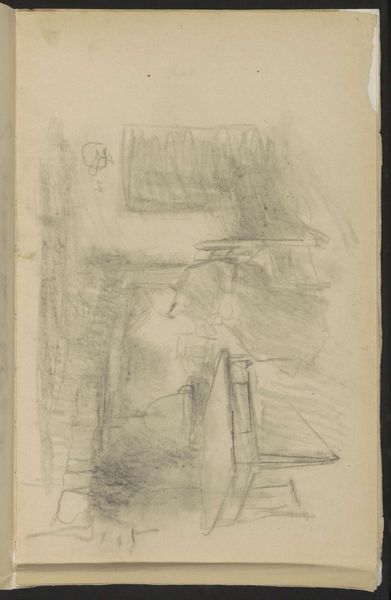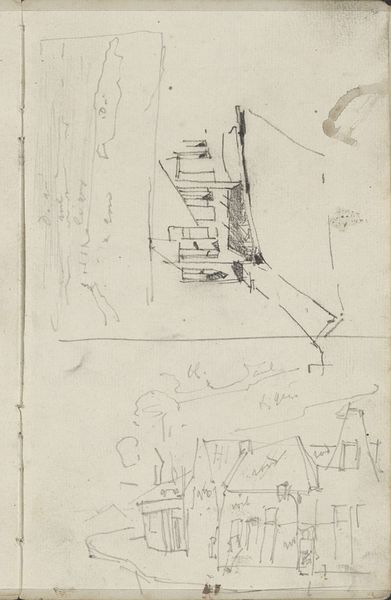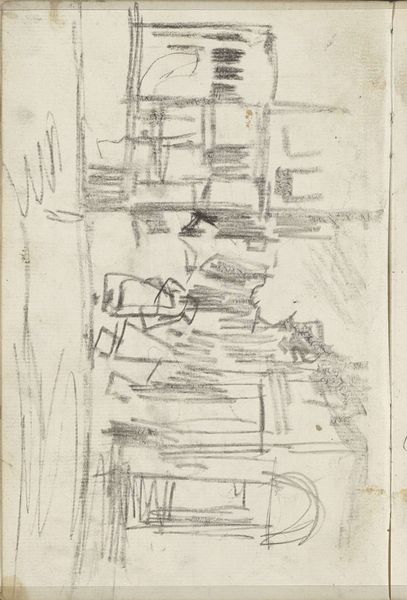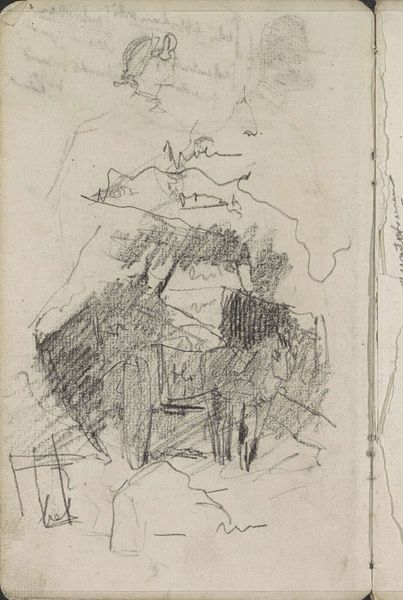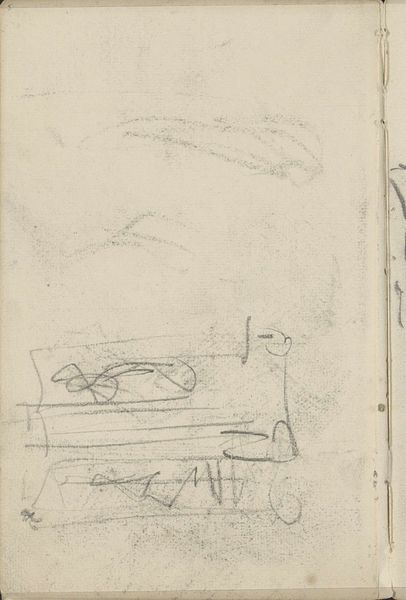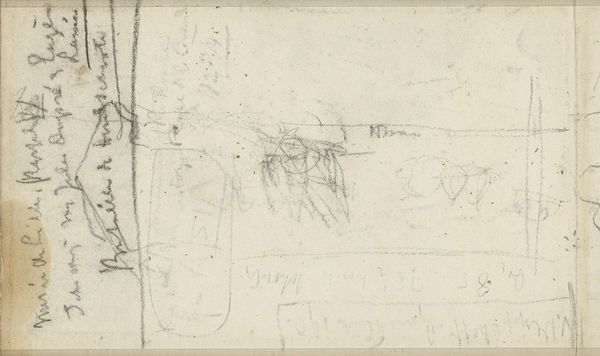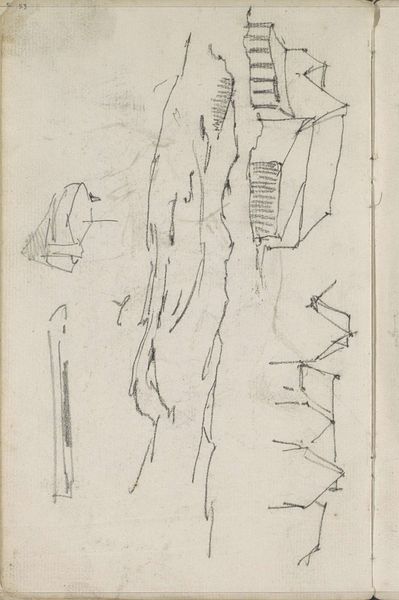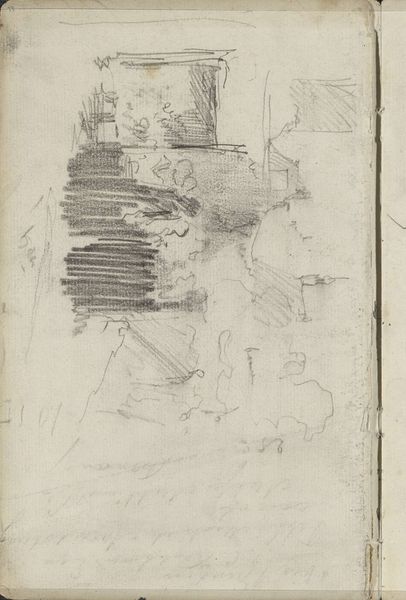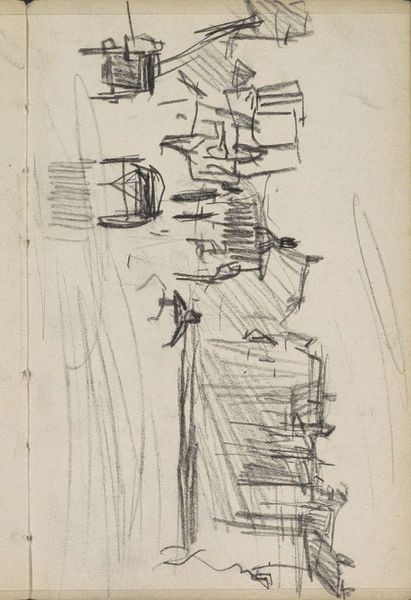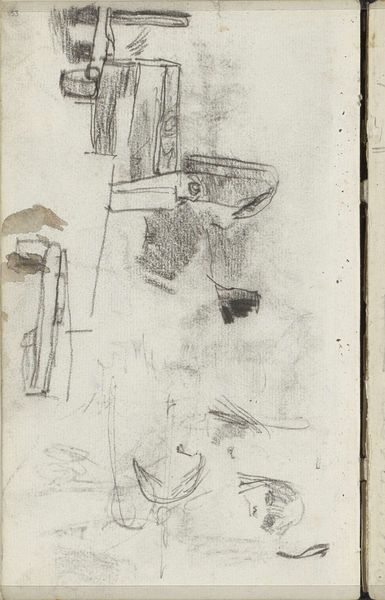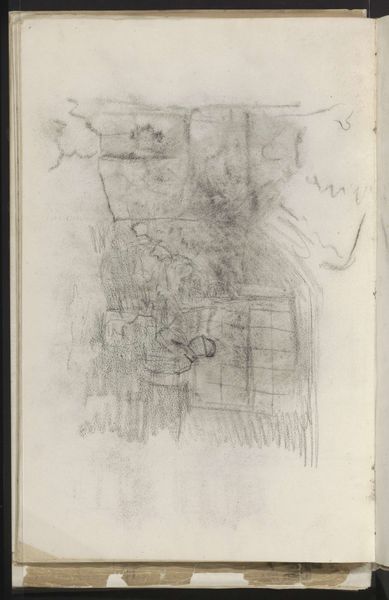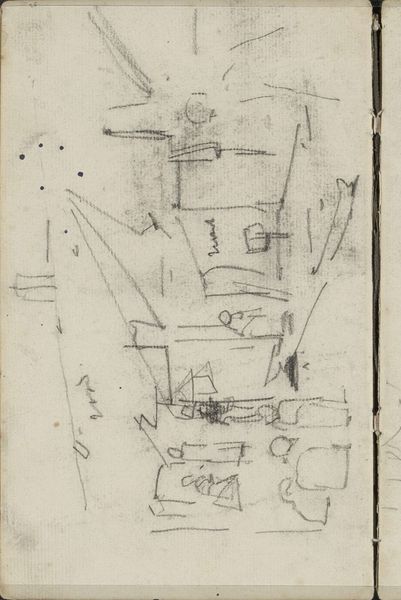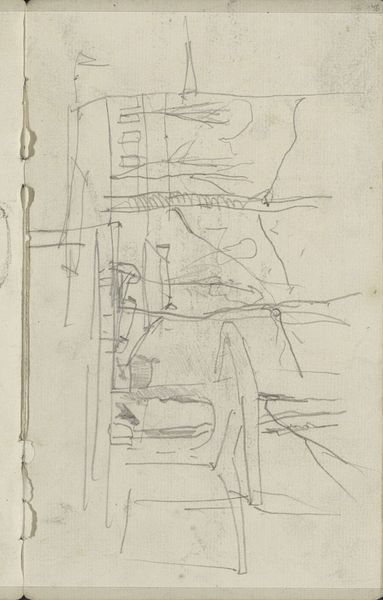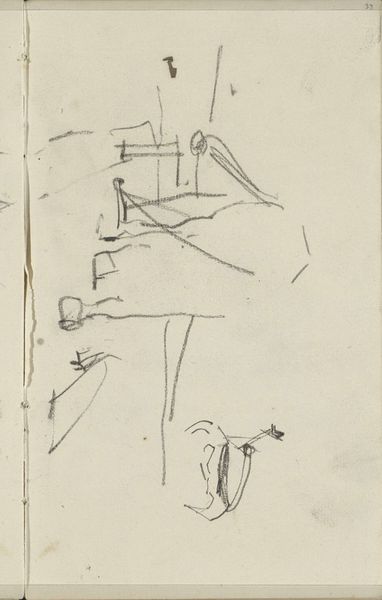
drawing, paper, pencil
#
architectural sketch
#
drawing
#
amateur sketch
#
aged paper
#
toned paper
#
light pencil work
#
impressionism
#
sketched
#
sketch book
#
incomplete sketchy
#
landscape
#
paper
#
personal sketchbook
#
detailed observational sketch
#
pencil
#
cityscape
Copyright: Rijks Museum: Open Domain
Editor: Here we have George Hendrik Breitner’s “Architectuurstudies” from 1880 to 1882. It's a pencil drawing on paper. It feels very immediate, like a page torn straight from the artist’s sketchbook. What do you see in this piece that resonates with you? Curator: What strikes me immediately is the tension between the apparent casualness and the deliberate act of observing and recording urban life. Consider Breitner’s Amsterdam: a city undergoing rapid transformation. What role do artists play in documenting, but also critiquing, these changes, and whose stories are elevated and whose are erased in the process? What do you think? Editor: That’s fascinating! It definitely makes me consider the drawing as more than just a study, but almost a snapshot of a specific moment in Amsterdam's history. But is it really critiquing, or just observing? Curator: I would argue the act of choosing what to depict is inherently a commentary. Think about who traditionally held power in visual representation. By focusing on everyday street scenes rather than idealized landscapes or portraits of the wealthy, Breitner subtly shifts the narrative. Consider also how class and social identity play into experiencing this changing urban landscape. Who benefited from this rapid modernization? Editor: That's a good point, choosing to focus on ordinary city scenes challenges the existing narratives about the city's elite class. I guess I had never really considered the political power of just sketching what's around you. Curator: Exactly! Breitner's sketches offer a glimpse into the lived experiences of ordinary people, their ever-changing surroundings and, consciously or unconsciously, invite us to question the status quo and consider whose perspectives are centered in our understanding of history. Editor: That makes me see this sketch, and perhaps all sketches, in a completely different light. Thank you. Curator: And thank you, it's vital to rethink our assumptions about these fleeting artworks as holding space for the marginalized in art.
Comments
No comments
Be the first to comment and join the conversation on the ultimate creative platform.
